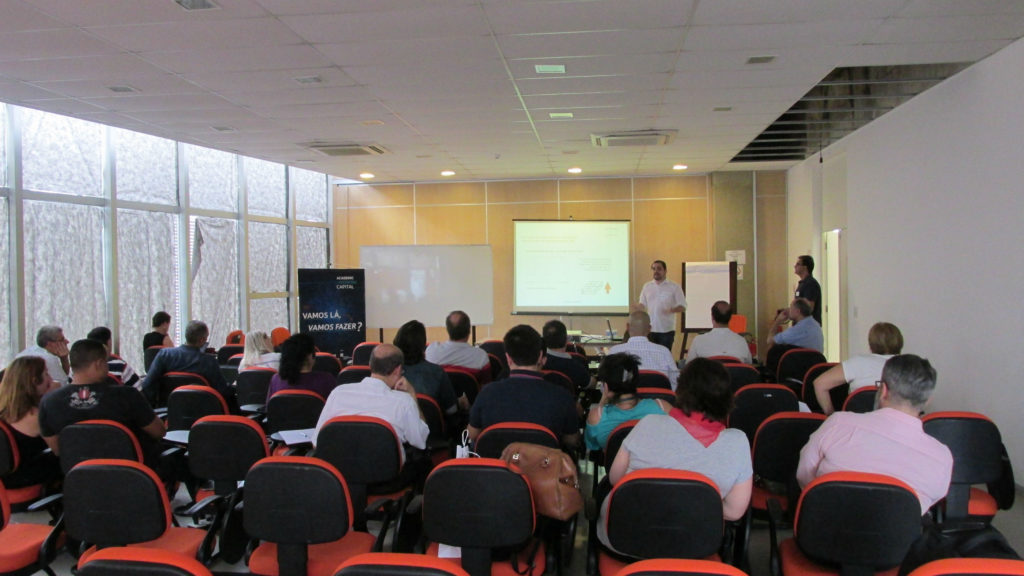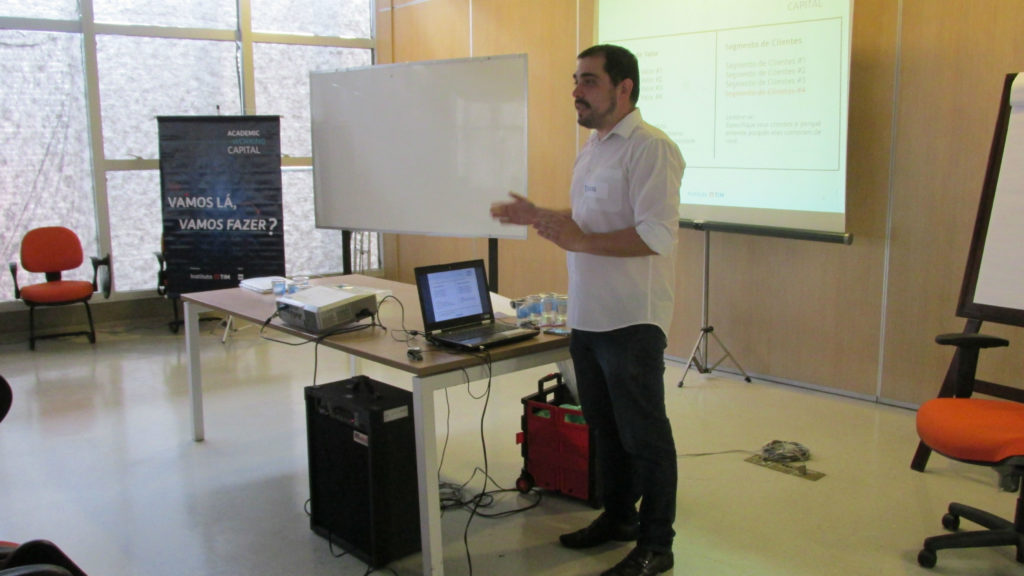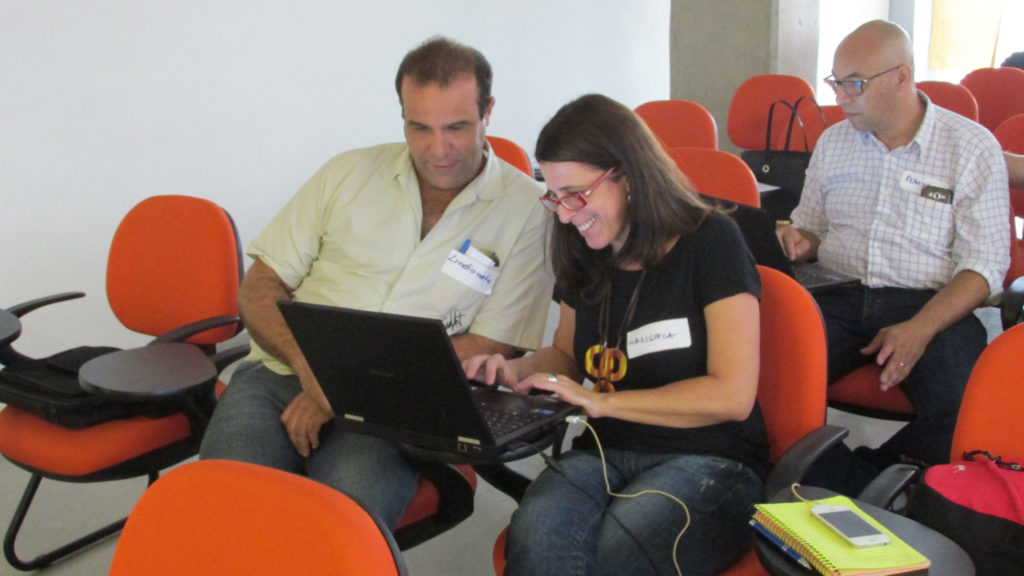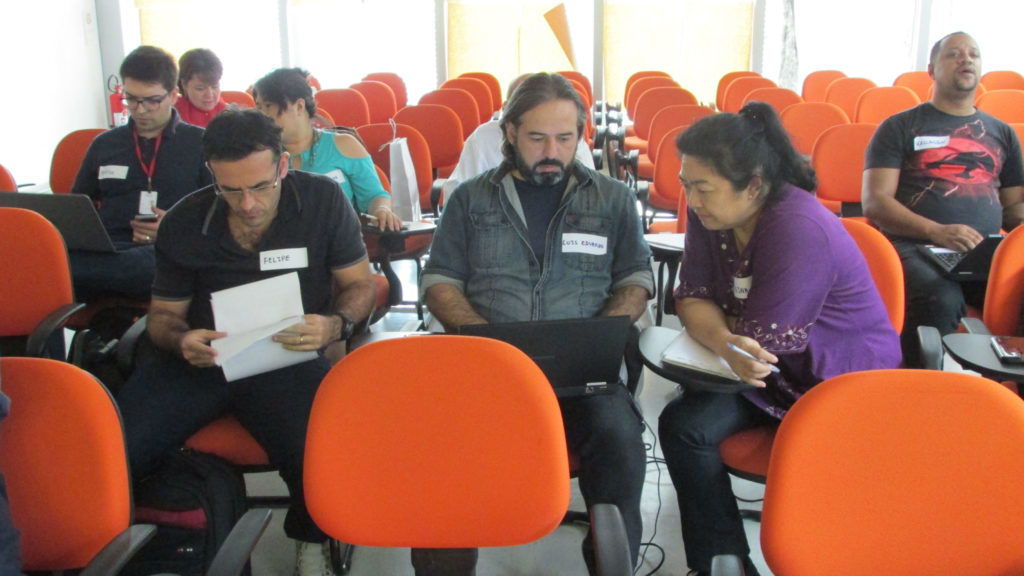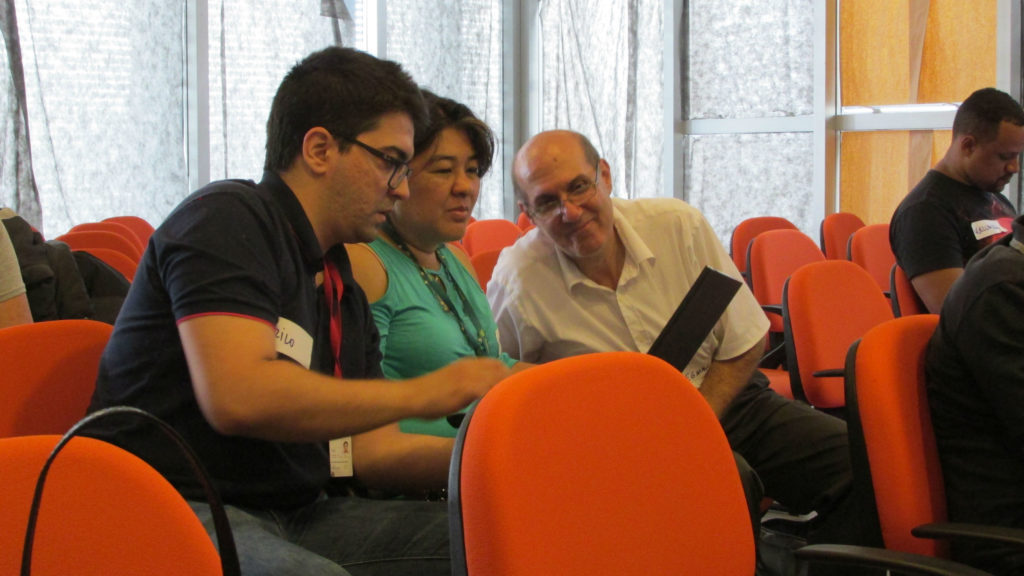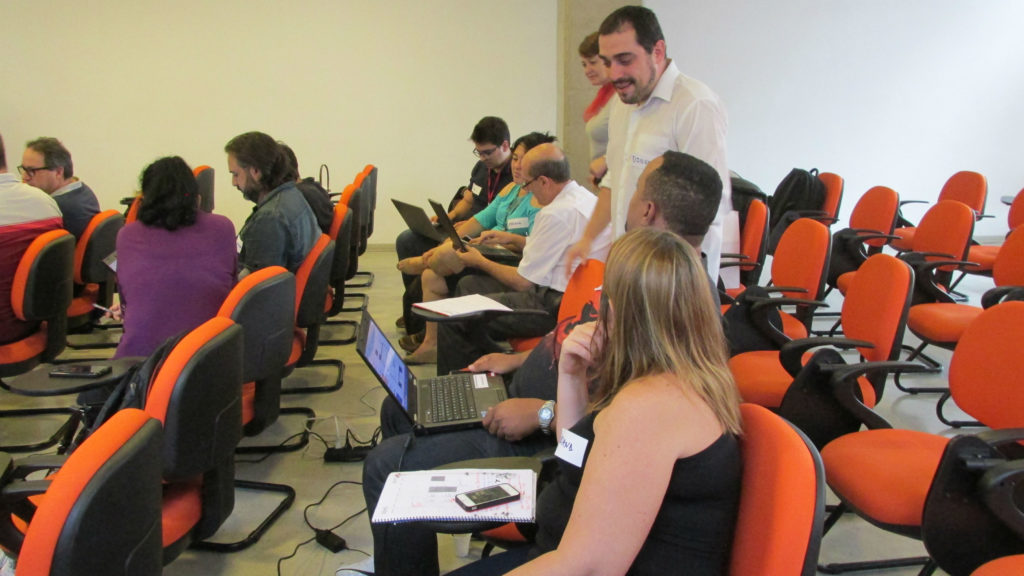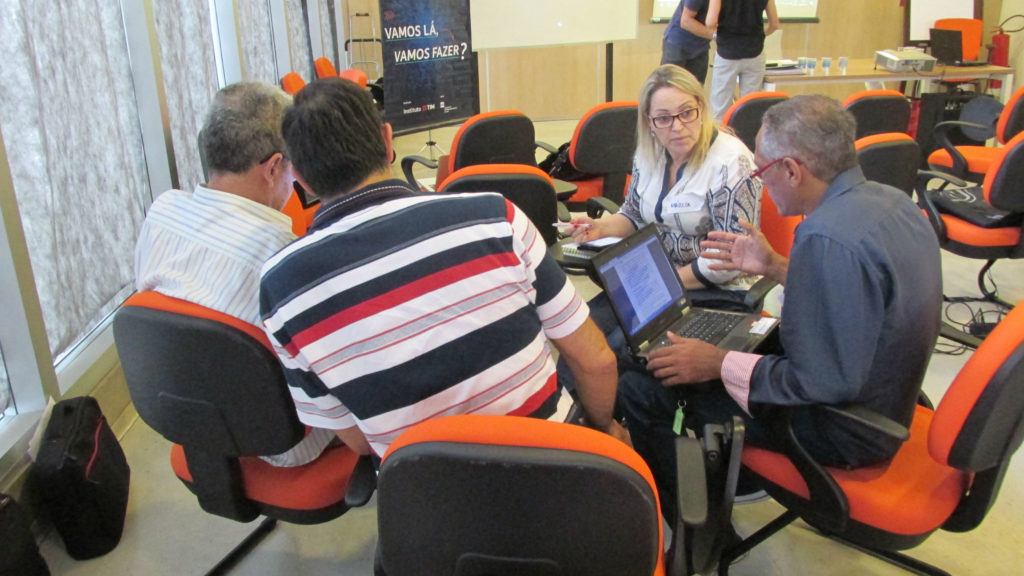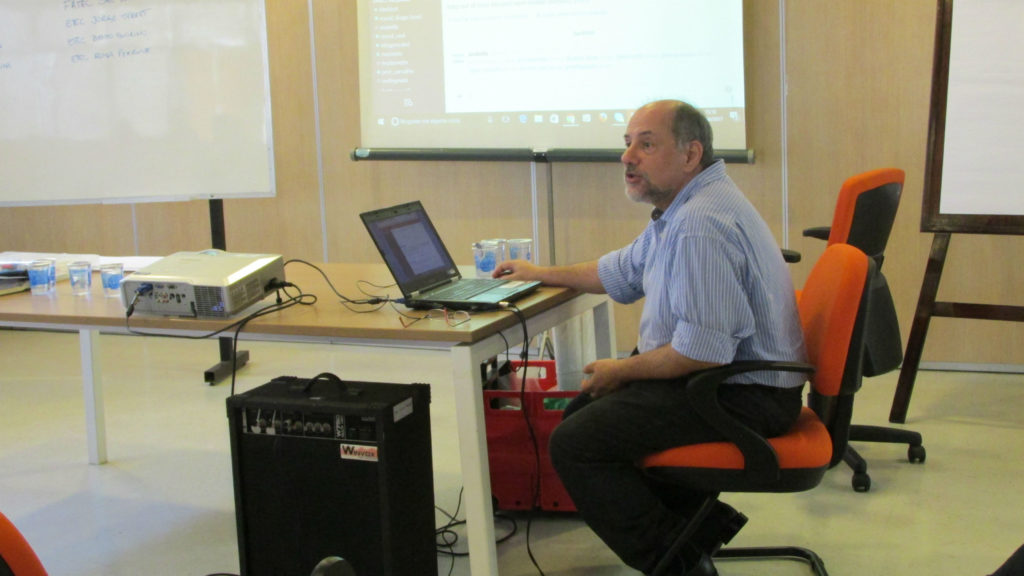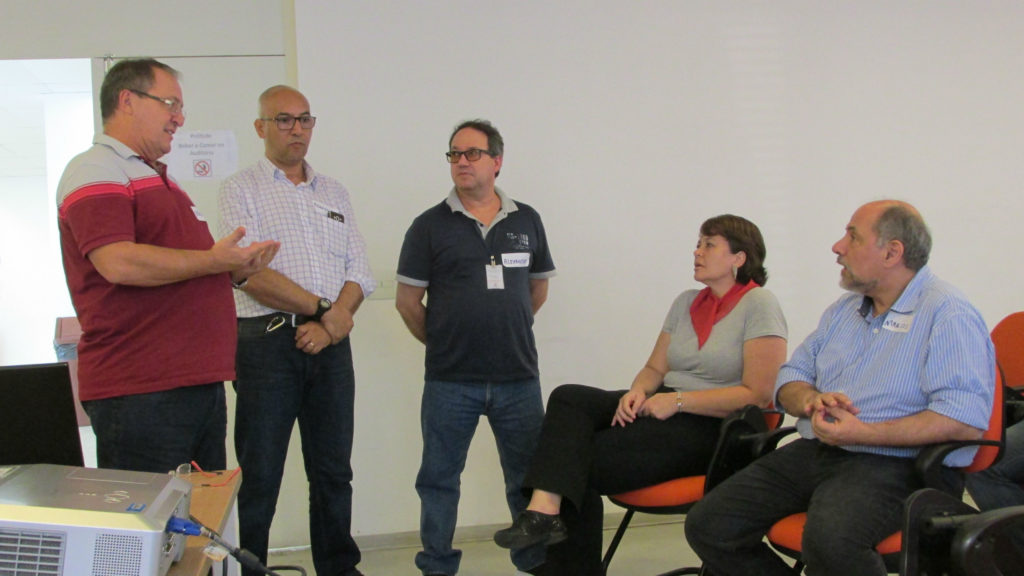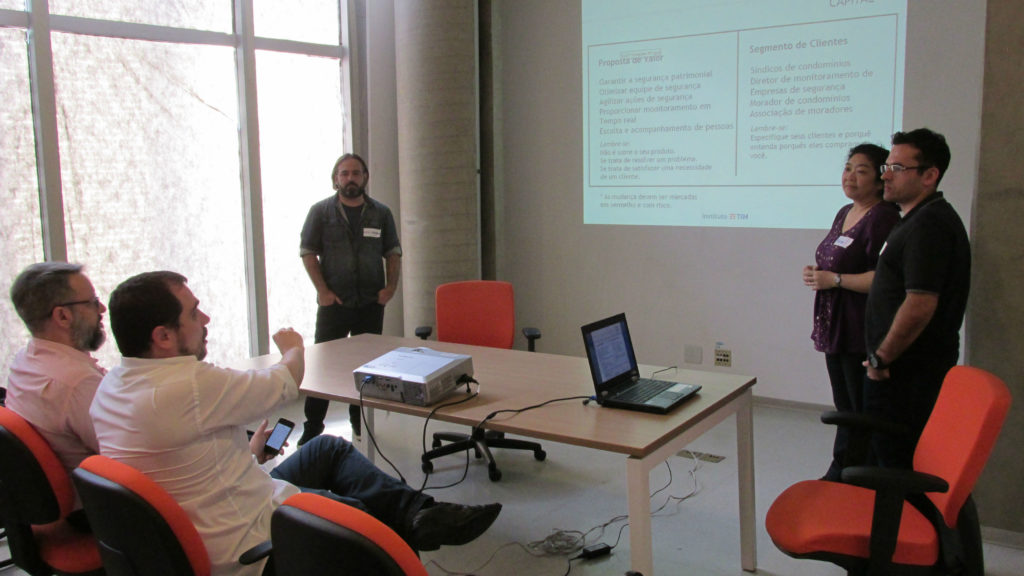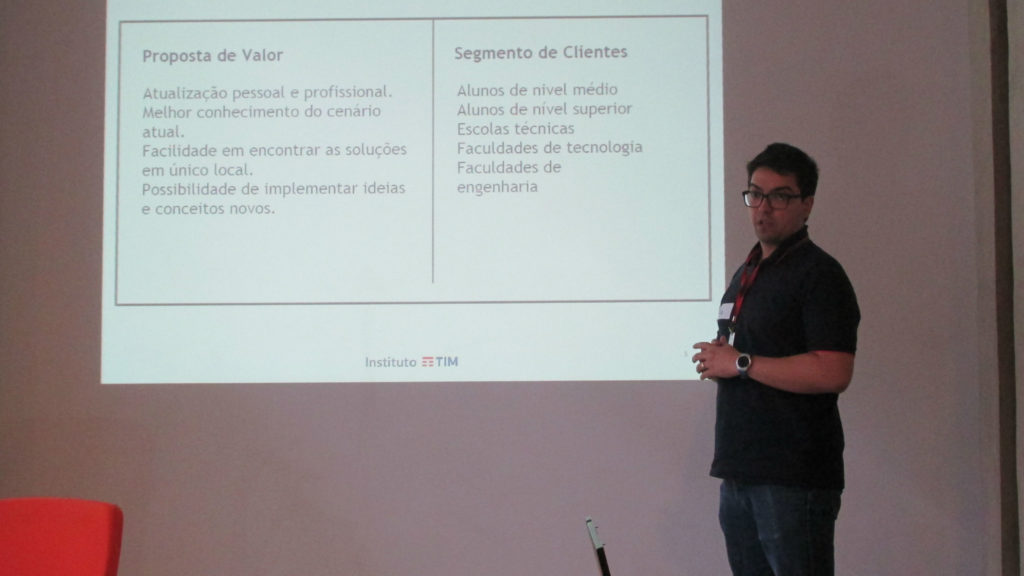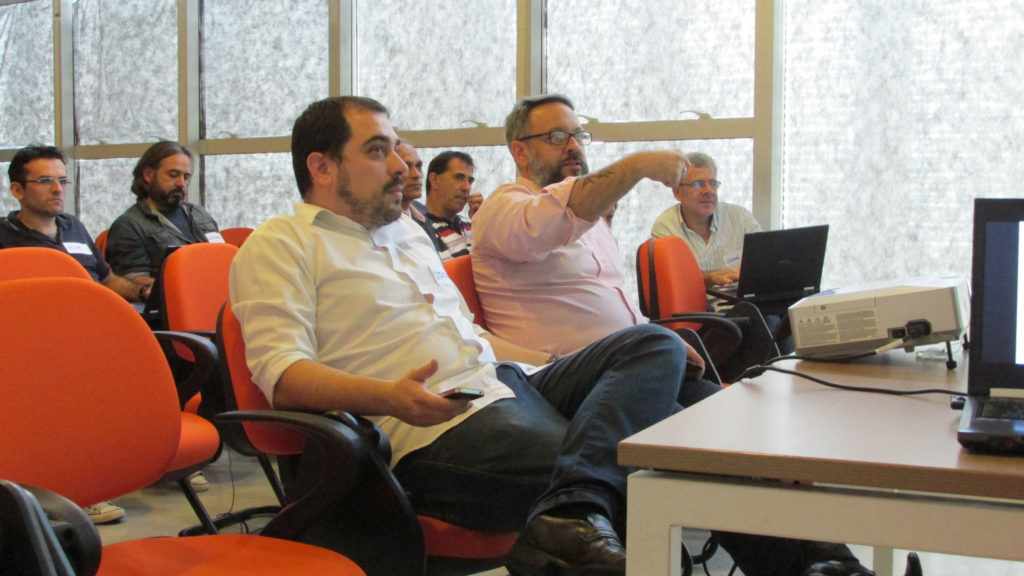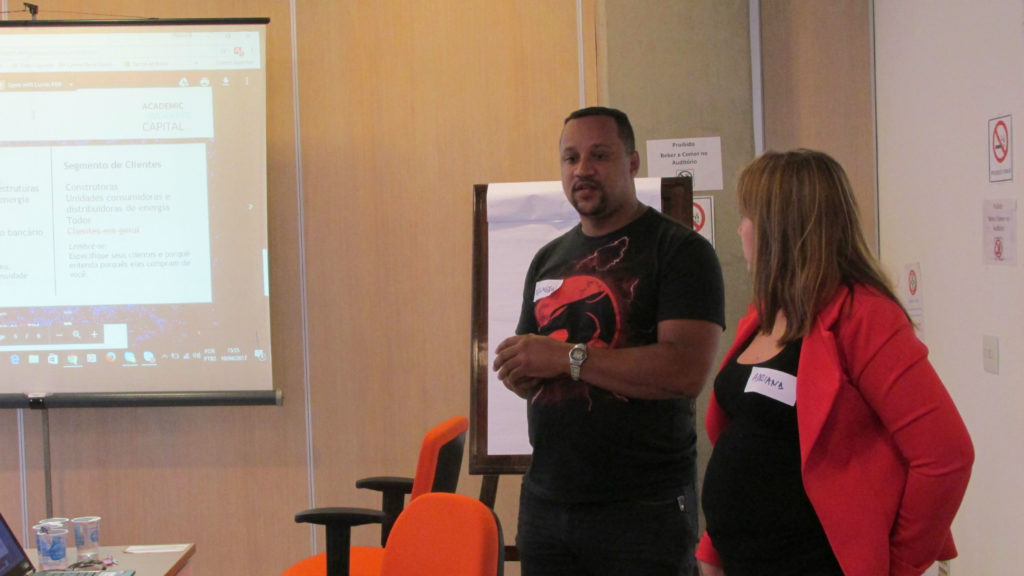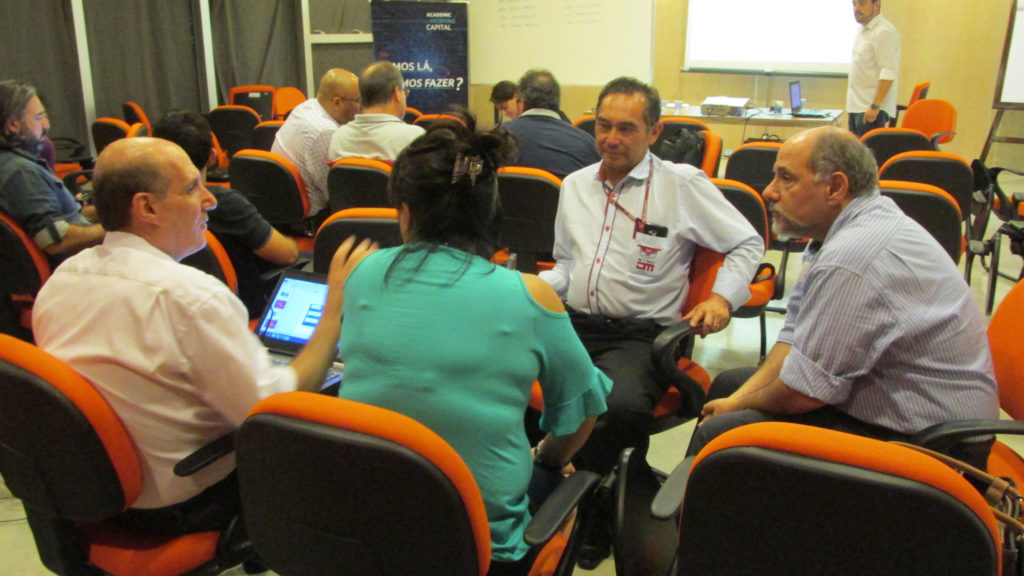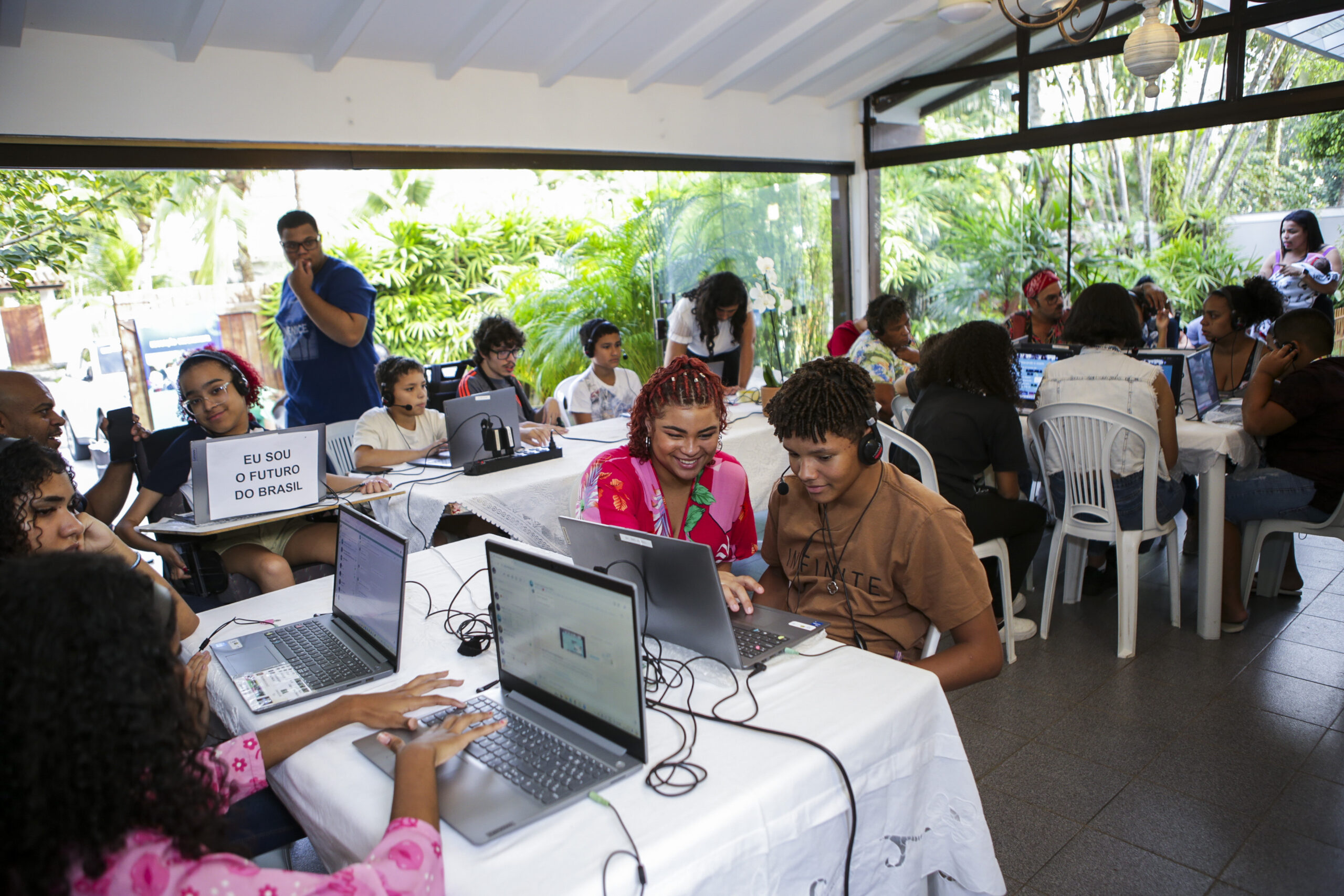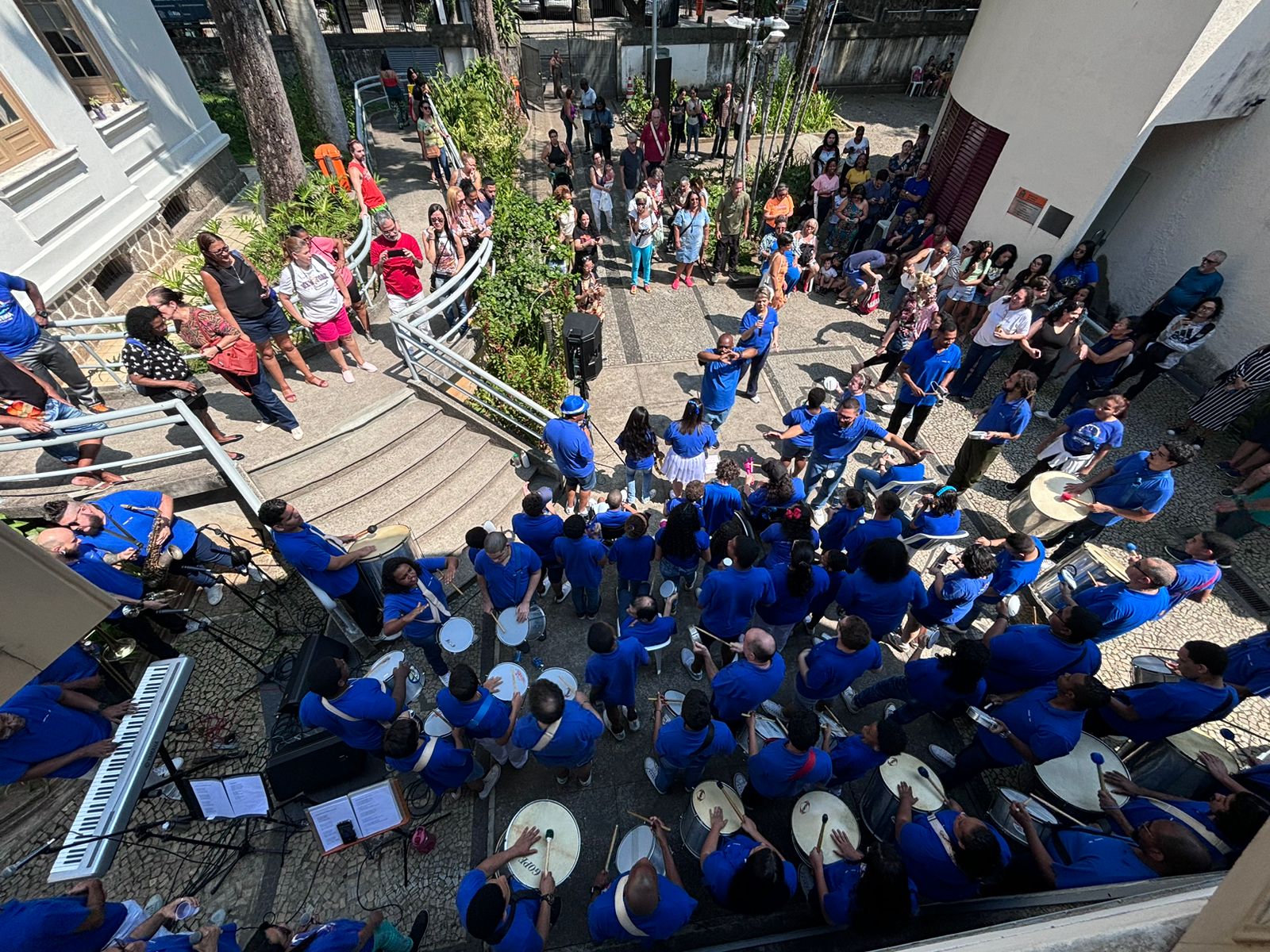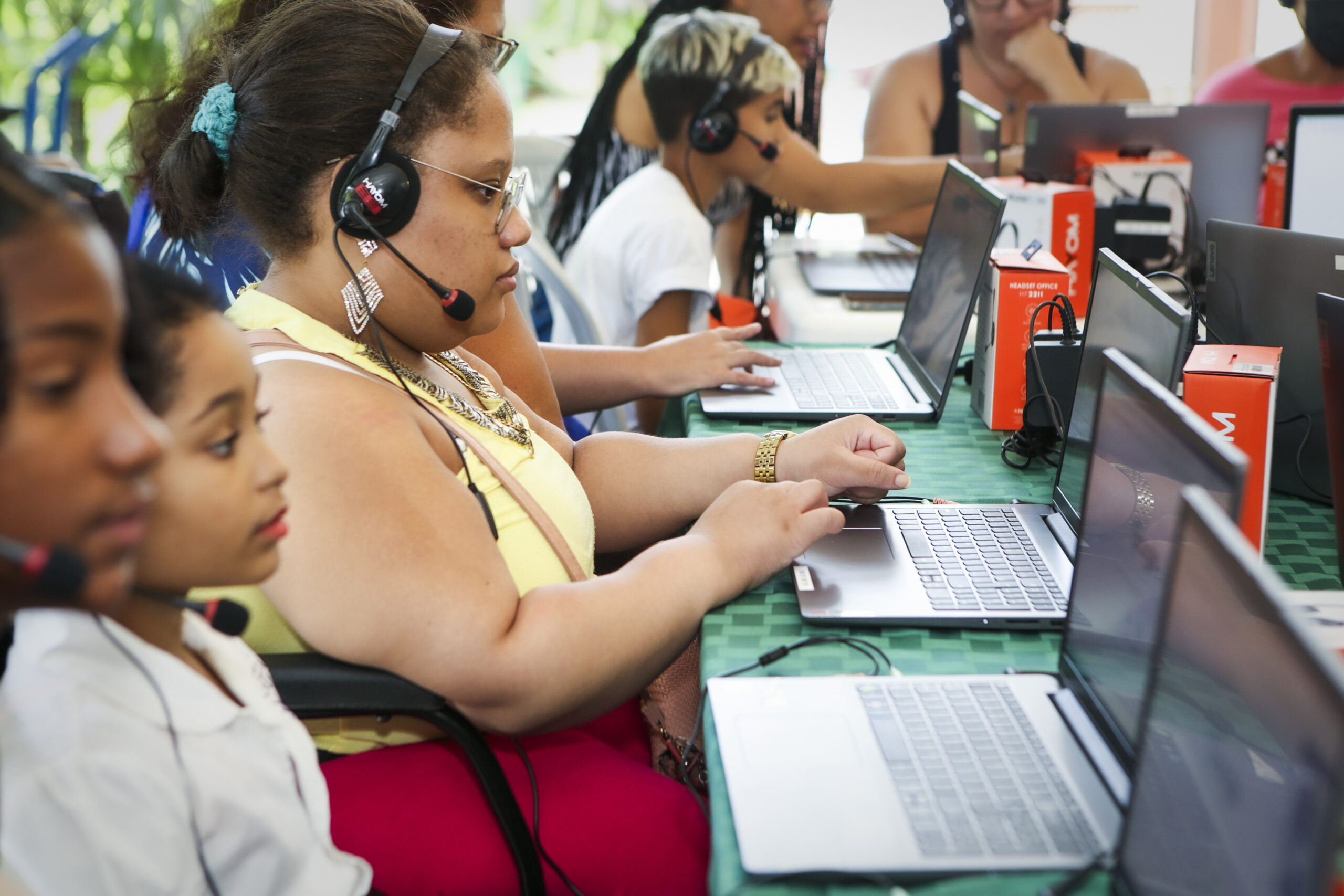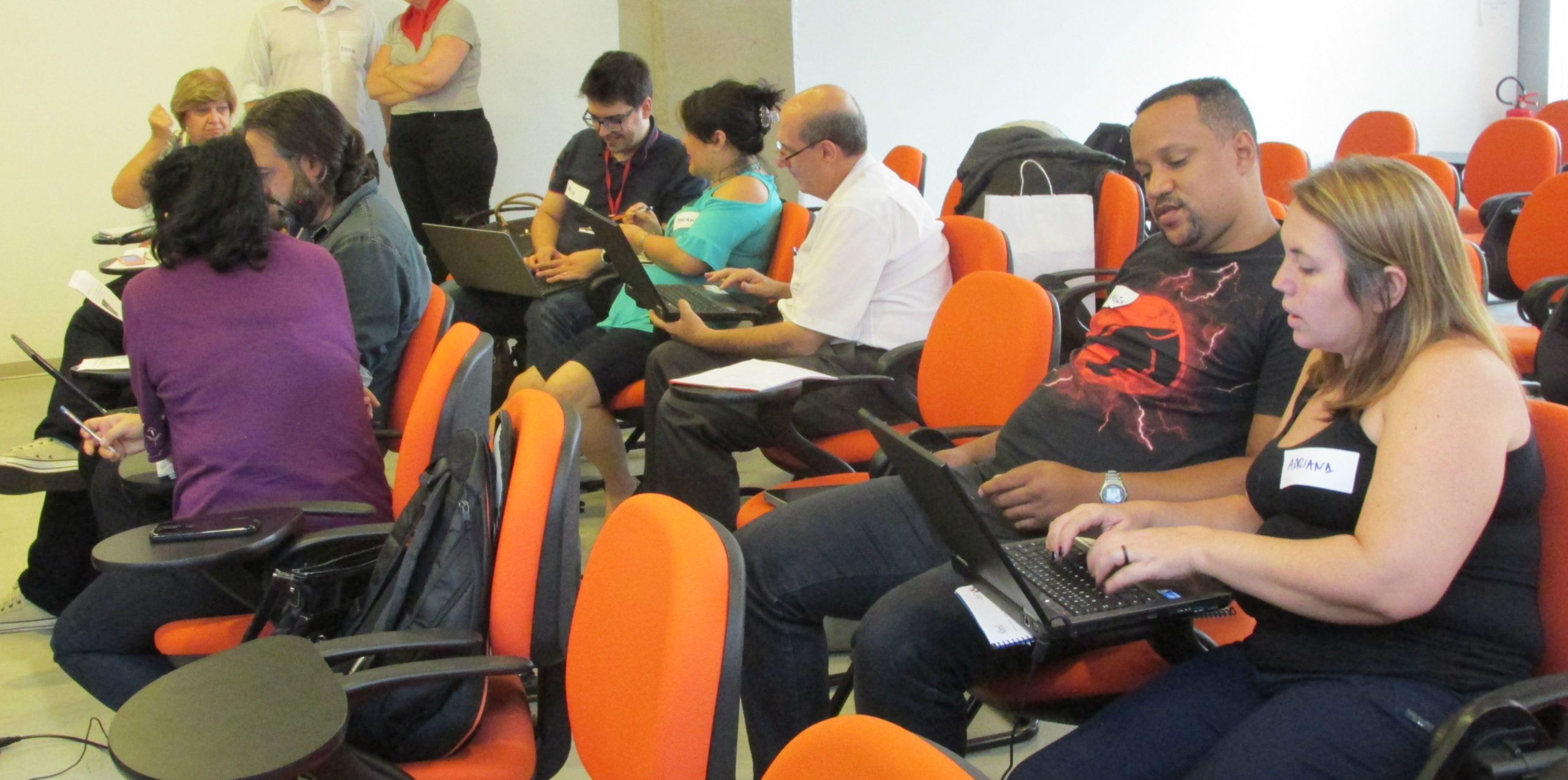
Instituto TIM, in partnership with Paula Souza Center, performed the first Academic Working Capital training for teachers of State Technical Schools (Etecs) and a Technology College (Fatec). The aim of the training is to expand teachers’ knowledge in entrepreneurship and business modelling, as well as to help them to become mentors for students in the development of technology-based products. Around 20 teachers from seven Etecs and one Fatec participated in the training, held on April 10th at the Central Administration of Paula Souza Center.
Marcos Barretto, professor at the University of São Paulo (USP) and academic coordinator of AWC, explains that during the training period the teachers will perform the same activities that students do in AWC to test the problem. “It is important that you understand the whole process, because if we don’t do it, we won’t know what it is like”, he said. The first three trainings, which will be held from April to June, will address different aspects of problem testing. The fourth training, in July, will discuss the role of the mentor. By the end of the year, teachers will also be invited to submit materials and interact online, besides following AWC’s mentoring sessions, workshops and Investment Fair with students.
The mechatronic engineer and content coordinator of AWC, Diogo Dutra, talked about the definitions of scientific entrepreneurship and startup and presented the tools used by entrepreneurs to test hypotheses and define project’s requirements. Before the training, the teachers of each institution wrote proposals, according to AWC’s public notice, of technology-based products that they will use as an example in the activities – they will not have to create them. The first task proposed by Diogo was for the groups to fill out slides with the value propositions and customer segments of their products.
Divided into two rooms, the groups had three minutes each to present their products and slides. During the presentation, the other groups were able to comment through Slack platform. The face-to-face feedback was given by Marcos and Diogo with the participation of Raul Javales and Larissa Maçãs, partners of the consultancy The New Ventures Group. Both have experience working with startups and innovation and will contribute in all trainings for teachers of Etecs and Fatecs.
Diogo talked about how the tools are used by AWC participants and showed the structure of the Value Propostion Canvas, the CSD Matrix and the first slide deck that will be made by the groups. He recalled that more important than the tools themselves, is the ongoing process of validating information. “It is not about the tool, it’s about the learning cycle”, he highlighted. All of these tools will be updated by teachers throughout the trainings.
Like the students, teachers will also have to conduct interviews with potential clients to validate their products and register all information on an interview deck. “Doing this process saves work. You have to do this to prevent your product from being useless to everybody”, said Diogo. The coordinator gave suggestions on how to map and select contacts, perform the approach and prepare questions. At the end of the day, the groups focused on updating their slides according to the feedbacks, starting to develop the Value Proposition Canvas and the CSD Matrix and thinking about how they will conduct the interviews.
The institutions participating in the training were Etecs Tereza Nunes (São Paulo), Getúlio Vargas (São Paulo), Aristóteles Ferreira (Santos), Júlio de Mesquita (Santo André), Jorge Street (São Caetano do Sul), Bento Quirino (Campinas) and Rosa Perrone Scavone (Itatiba) and Fatec São Bernardo do Campo.
